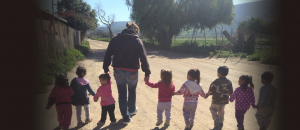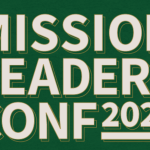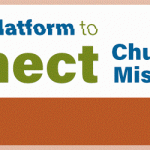 We don’t even know how to respond to this radical TED Talk. When you get a chance, would you please listen and comment? How should this affect our strategic planning regarding orphanages, in your opinion? Just click “Comment” following the online version of this item – please.
We don’t even know how to respond to this radical TED Talk. When you get a chance, would you please listen and comment? How should this affect our strategic planning regarding orphanages, in your opinion? Just click “Comment” following the online version of this item – please.












SO, so very true. What Tara says needs to be heard. The western evangelical church, passionate to do good, is naively destroying families and not helping these vulnerable children. I have yet to see an orphanage with more than 10% of true orphans. This has become a business supported by the naive westerner (in Latin America mostly supported by North American short-term mission teams).
Some Ukrainian pastors decided to begin what is now a global network called World Without Orphans http://www.worldwithoutorphans.org Their message is the same as that of Tara but they add the recommendation that where possible, believers within the culture should adopt those that are truly orphans.
However, I am not optimistic that things will change much, due primarily to the fact that many westerners are motivated more by what makes them feel good than by sacrificing to truly help families escape poverty.
I’m glad community-based care for orphans and vulnerable children is getting some traction. Some of us have been raising this issue for 10+ years. Often have felt like a voice crying in the wilderness. Check out the Faith to Action Initiative and their resources at http://www.faithtoaction.org/.
This is wonderfully said. After 10 years in Vietnam during the war, we saw the heart of Americans for the orphans, but also knew that some of the ‘orphans’ were not orphans … admittedly they came from poor families but family care is absolutely a better solution, and one we tried hard to advocate for.
I support the speaker’s position in just about every premise. However, this assumes that the child will be in a ‘normal’ situation.
With the case of Christian orphanages in South Asia, for example, children come from other religious backgrounds. Christian Workers obviously want to exemplify and teach the kids the Christian faith. This is where the challenge starts – how do you put the child back with the family who is Hindu, Buddist or Muslim, for example?
I have to concur with Tara. Our mission has worked in Africa and has seen the problems with institutionalizing children. As she points out few if any have no family at all. In addition to what she has pointed out in Africa family is extremely important in many things like getting married, getting a job etc.
I agree with Tara. There is a reason there are no longer orphanages in the countries she mentioned. Those reasons are also valid in other countries. The Christian community needs to be at the forefront of this issue. Instead of supporting orphanages, we need to help get at the root problems. In the case of the true orphan, adoption by Christian families would be great. Families do need to be screened thoroughly though, as there can be abuses in families, too. As to the question about placing children back with their Hindu, Buddhist or Muslim family, of course we have to do that and hope we can reach the whole family for Christ. Taking children away from families will not win them to Christ.
This is a comment coming from the third world!
I fully agree with the perspective given by the speaker and am talking from practical experienced!
It just fell on me to carry on the task started by someone else in looking after the orphans though that was not my profession or calling! I did not have support nor sponsor but though the business and contacts carried on the task for 25 years! I saw some success but on evaluation more failures than success! It is true after proper survey and talking with the kids, most are not real orphans but either single parents or sometimes children from poor families in need of education! Of course we have dlso tried supporting through the families but many times poverty in the family does not allow anything they have or get to educate their children!
Through our efforts, some have graduated from univerdities working as professors, bankers, teachers, lawyers, doctors and nurses! But when taken into context, the return does not justify the investment! I think eternity will be the only one to judge that! But i agree that orphanages has spurned off lots of corruptions in the name of children! God help us!
I agree that family should be the answer but in poverty the tummy comes before the uni!
My point is that “God created the family, nuclear and extended, man created religion/s by all sort of names and religion created institutions, good bad and ugly”! The question is how do we educate poor families to understand that?
We are still groping in the dark, searching in the sands for ways and means in poverty assistance! But i feel orphanages will and can never be the answer!
Help us understand as Jesus only told us to feed the hungry, quench the thirst, clothe the naked, heal the sick, visit the prison, and be hospitable to strangers by dealing with our racism! Racism exist worldwide and in all forms and particularly in religion! We are not fountain of wisdom and most of our wisdom comes from below!
This is an important social issue in many countries. But Tara’s idea is not new. While living in Cambodia in the 2000s, I talked with a Dutch woman (now deceased) who promoted family-based orphan care in Cambodia for many years; part of her reasoning was that children taken to urban orphanages from rural villages lose their inheritance–the land. Others snap up the land while they’re away, and they can’t get it back later. In the end, they often simply become urban poor.
However, I do note that Tara based her statistics (suicide, etc) on just “one study” (her own words), and I have a few other hesitations about her message, such as the professed poverty of “Torn’s” family, when they were standing in front of quite a nice house (compared to Khmer people I know).
Ultimately, though, I agree with other comments in this thread, that so much of the problem has to do with the short-term thinking, when Westerners believe they can “give” a few weeks or months of their life and that constitutes acceptable mission. I don’t know enough Greek, but would be interesting to see if the “look after widows and orphans” in James 1:27 is a present-continuous tense rather than something James anticipates can be completed in a single action. Too often we fling money at a problem and aren’t willing to make the longer-term personal commitment that would bring a real solution.
I found Tara’s comments to be articulate and compelling. After being the guilty American helper, I read Craig Greenfield’s book Urban Halo (2007) where he described coming to the same conclusion after working in Cambodia. Another aspect of this issue that Tara didn’t address directly is how “orphanages” can promote the trafficking and sale of children. International adoptions have placed large amounts of money into the hand of people who need babies to fill a demand and often obtain them dishonestly.
Largely support perspective with caveats: First, we need to be humble about our ‘latest discovery’ to save the world–which is usually a corrective to our last “discovery.” Second–The US has many residential care institutions. e.g. boarding schools, childrens homes, group homes, therapeutic ranches and prisons. Third–The same arguments can be applied against schools and early-childhood development. Fourth–Many organizations have worked in this direction for many years. Fifth–It is faulty to make “residential care” the common denominator of what needs to change. There are a whole range of interventions/supports that can be beneficial and harmful. Whether they are residential or not is one variable–not the central reality.
Secular and non-christian and paternalistic Christian organisations are notorious for using kids as she described. Wonder how much she knows of World Vision or Compassion, etc?
All the Christian ones I know in Asia and Africa screen and only take in true orphans. And they place them in family groupings with “parents”.
In Australia where I now live, as part of leadership training in the 1980’s I also visited 3 of the 4 centres run by Churches of Christ. All the kids were there at their parents request – no stolen generation all in Western Australia.
Will be in Cambodia next February. Son and wife are in-Country mangers for Aussie startup company Outland Denim which employs rescued girls. Boss took a year to guarantee no slavery in supply chain.